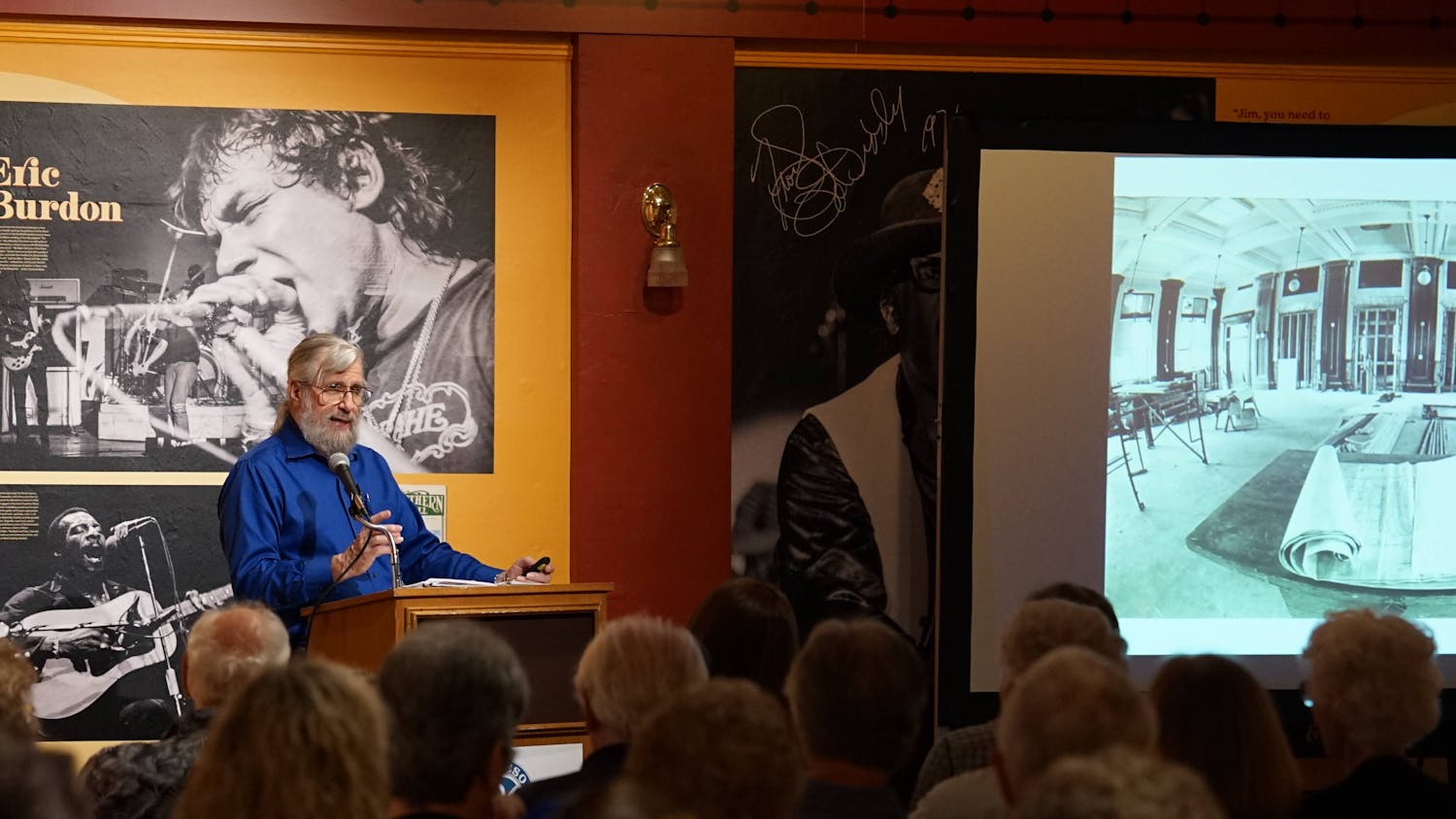“Le Week-End,” playing at the Hippodrome State Theatre until June 5, is a small marvel of a film. Though it deals with a subject that (on the surface) is hard for college students to relate to — the boredom that grows in a long relationship — “Le Week-End” is still full of small, often devastating truths about the human condition we can all relate to.
This is the story of Meg and Nick Burrows — a couple celebrating their anniversary in the city of love. Meg (Lindsay Duncan) is impulsive and seeks adventure and excitement, while her husband, Nick (Jim Broadbent), is fussy and anxious. The opening scene of her pointedly reading a book, while he frets over where the maps and euros are, perfectly describes their marriage.
Her ultimate goal in Paris is great food, excellent wine and a spark of romance: His is to find time to discuss retiling their bathroom.
Director Roger Michell (“Notting Hill”) does an admirable job of not letting the Burrows become caricatures.
I have seen all too often a movie make its leads one-dimensional — in less talented hands, Nick could have been pathetic and Meg cruel. But these two are never less than nuanced, complex human beings.
Meg publicly accuses Nick of being too clingy yet panics like a small child when she wakes and cannot find him. He seems complacent but admits to considering starting everything over. The film acurately depicts a long-term relationship, familiar to anyone who has parents or grandparents who have been together for a long time — often barbed and insufferable but never unloving.
Their relationship is summed up brilliantly about halfway through the film, when Meg tells Nick, “You make blood boil more than anybody else.”
“The sign of a deep connection,” is his reply.
Even at the climax of the film, when Meg is considering leaving with another man, the audience knows it won’t really happen. They are too devoted to each other. She just wants to make him say it.
“Le Week-End,” though mainly drama, can also be very witty, and the main source of amusement is their sex life (or lack of it).
“Your vagina has been something of a closed book for 20 years now,” Nick tells Meg after getting a dismissive “What for?” when he asks if he can touch her.
He suggests taking their love-making “into another dimension” by pretending they’re other people, a suggestion to which she disdainfully replies, “if you stay awake.” In one of the films funniest lines Meg complains — after being accused of adultery — “What a waste, to be accused of being a whore and to be so innocent.”
Each of the film’s leads has received some award for acting, and they richly deserve it. The film would be much less without their emotional vulnerability and dry wit.
It is unusual to see a screen relationship so brutally honest yet intensely romantic and that has much to do with Duncan and Broadbent’s chemistry on screen. I give “Le Week-End” four stars out of five.
[A version of this story ran on page 9 on 5/29/2014 under the headline "For a non rom-com look at long-term lovers, see ‘Le Week-End’"]





